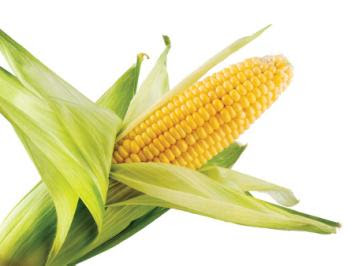What You Might Not Already Know about High Fructose Corn Syrup
 |
| Mother Earth News |
Did you know that High Fructose Corn Syrup (HFCS) has been around and added to our food for over 40 years?
Is it that we are now becoming cautious of what goes into our bodies that we are reading labels and asking questions? One of the first items, from a long list, omitted from many diets was Mono-Sodium Glutamate (MSG), and now we are battling bisphenol A (BPA) and high fructose corn syrup in what seems like everything packaged.
Sweet Surprise says "... many health professionals agree that whether it’s sugar from corn or sugar from cane, your body can’t tell the difference—your body metabolizes both the same way." This may be a true statement if we were to eat an ear of corn or take sugar from the cane. However, Sara Novak from TLC tells us, "First of all, there's nothing natural about high fructose corn syrup and it most certainly does not exist in nature. The process starts off with corn kernels, yes, but then that corn is spun at a high velocity and combined with three other enzymes: alpha-amylase, glucoamylase, and xylose isomerase, so that it forms a thick syrup that's way sweeter than sugar and super cheap to produce. That's why it's poured into a huge majority of mass produced processed foods."
Here are a some things to consider about high fructose corn syrup:
- "Corn is one of the most commonly genetically modified foods." Amanda Kimble-Evans
- "High-fructose corn syrup is the primary source of calories in the United States." Anthony Gucciardi
- "High fructose corn syrup is made from corn, a natural grain product. High fructose corn syrup contains no artificial or synthetic ingredients or color additives and meets the FDA requirements for use of the term “natural.” " Corn.org
- In 1864 New York's Union Sugar Company started manufacturing corn syrup - "a more reliable and cheaper sweetener". EatingWell
- "America spends almost four billion dollars on corn subsidies." Sweet Disguise
Jennifer K. Nelson, R.D., L.D. states that "Recommendations from the American Heart Association — not a part of official U.S. dietary guidelines — say that most American women should consume no more than 100 calories a day from added sugar from any source, and that most American men should consume no more than 150 calories a day from added sugar, and that even less is better. That's about 6 teaspoons of added sugar for women and 9 for men."
What can we do if we don't want HFCS in our diets:
- Buy a similar product that does not contain HFCS
- Check to make sure that HFCS (if included) is low on the ingredient list
- Buy organic
- Most importantly is to read the label of everything and make an educated decision. For example, one loaf of bread may have HFCS while another equally nutritious loaf will be sweetened with sugar or honey. The decision is yours.
- Realize that when eating out, there will most likely be HFCS in the food
Weigh in with your decision and share your thoughts. Would HFCS be better if the corn is not genetically modified? Is HFCS really an issue?
Please share me with your friends! Please forward this post to your friends or better yet share on Facebook, Twitter, and Google+. THANKS! Your comments and help in spreading the news about this site is ALWAYS appreciated! Be sure to sign up to receive future articles delivered directly to your inbox.



Comments
Post a Comment
Your comments and help in spreading the news about this site is ALWAYS appreciated!